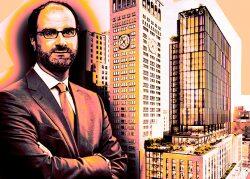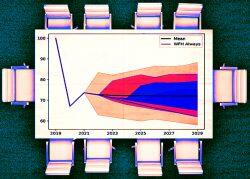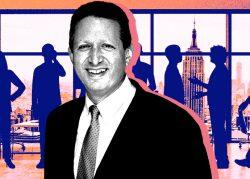IBM, which became one of America’s largest employers by staying ahead of the technological curve, revealed a new prediction this week: Remote work will endure long after the pandemic subsides.
At the Aspen Ideas Festival on Monday, IBM CEO Arvind Krishna said that only 20 percent of the company’s employees were going into the office at least three times a week, and that only about half will ever return to their desks more often than not, CNBC reported.
“I don’t think it’ll ever cross 60 [percent],” Krishna said of the company’s office occupancy. “So I think we’ve learned a new normal.”
Krishna did say that remote work would lead to some degree of wage adjustment, predicting “a decrease in the growth rate, a step down.”
IBM was an early adopter of remote work, but reversed course in 2017 to emphasize office-based work until the pandemic scurried employees once again.
If actions speak louder than words, however, IBM is far from giving up on the office market. This year, the company signed a 16-year lease for more than 300,000 square feet at SL Green Realty’s One Madison Avenue in Manhattan, where it will consolidate employees from 10 other offices in the city. But the lease will leave the firm with a smaller office footprint than it had previously.
Bringing employees back to the office has been a struggle since the start of the pandemic, particularly in New York City. Office landlords had cause for celebration this month when the city’s office occupancy pushed past a mere 40 percent for the first time in more than two years, according to Kastle Systems’ Back to Work Barometer, which measures office occupancy based on building entry systems. That week, national office occupancy hit 44 percent, also the highest since the start of the pandemic.
Still, reality is setting in for office landlords, who are preparing to take a collective hit in the coming years. An analysis from a team at NYU estimated that by 2029, the city’s office buildings will decline in value by 28 percent, or $49 billion.
Read more



[CNBC] — Holden Walter-Warner
